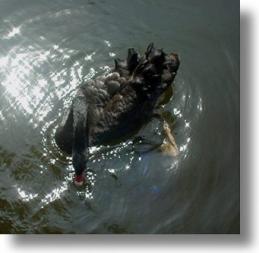Confirmation of a Decade Long Irrational Trend
Over the past few weeks, Thaistocks.com has published ten different historical comparisons on companies we follow in different industries. These short articles compared the financial results of select companies from the early 1990's, to the early years of the present decade (2001 to 2004). Thailand was in an early economic boom/cycle in the early 90's, similar to the economic boom/cycle we are currently in. The companies we selected were both small and larger caps, and all had been written about positively at Thaistocks.com either currently or in the past.
All data came from the "1994 Companies Handbook" published by the SET, which is exclusively available for members to download here at Thaistocks.com. Companies that were analyzed included: AJ, MODERN, TIPCO, DCC, CFRESH, KCE, STECON, OGC, BANPU, CPF. Members can find the individual articles by scrolling down on the main page, or by finding the link in the "Older Articles" box on the right hand side of the main page.
Our goal in these representative comparisons was to prove one main thing: valuations have dropped significantly while profitability levels have stayed just about the same. Thus proving that many select Thai stocks are severely undervalued according to their historical perfromance.
The table below displays the average results of this study:
|
PE ratio |
|
Div. Yield |
|
ROE |
|||
|
2004 |
12.83 |
5.18% |
17.11% |
||||
|
1993 |
26.39 |
3.58% |
18.94% |
||||
The average PE ratio of the ten stocks analyzed has dropped by more than half to 12.83 in the past eleven years. Despite this drop, average dividend yields have increased 45% to 5.18%. ROE has dropped slightly, but has stayed around the 17-19% level. Other factors need to be considered when analyzing the results. Namely, the huge fall in local and international interest rates from the early 90's compared to the present period. In the early 1990's bank deposits in local Thai Banks yielded double digit returns, vs. the current level of less than 1%! Simple economics tells us that as interest rates fall, PE ratios should rise as investors place more of a premium on companies that produce real earnings (and pay high dividends). The trend that we see in the results above defies this logic, as PE ratios have been halved while domestic interest rates dropped by 80% or more. The ROE results show that return on equity was more or less held constant over the comparable time period. This further strengthens our arguments that valuations have been wrongly and irrationaly dragged downward. The argument that poor returns have caused lower valuations by investors is wrong and unfounded, as evidenced by the relatively constant ROE results. The results do give a quantitative confirmation that many Thai stocks have been illogically undervalued by investors over the past decade, despite the strong financial performance and cash dividend yields by these stocks. Perhaps, more disappointing is that this trend has seemed to accelerate in recent months. As earnings have remained strong and growing at a healthy pace, stock prices have been dropping, particular in the realm of stocks Thaistocks.com follows. This causes PE ratios to drop further and dividend yields to rise. There is no apparent cause? It is easy to blame things on bird flu, violence in the South or high oil prices, but there seems to be an underlying long-term trend of general investor and institutional apathy towards these stocks. Most long term observers would agree that we have much higher political stability now than in the early 90's. It is extremely disappointing, because if these stocks were in other more established markets they would rightly trade at much higher multiples, but after all 'This is Thailand'. Globalization of investments remains illusive at best, during this same time period p/e ratio's have increased much more in slower growth/more developed stock markets. Best Regards, Paul Renaud. Thaistocks.com

